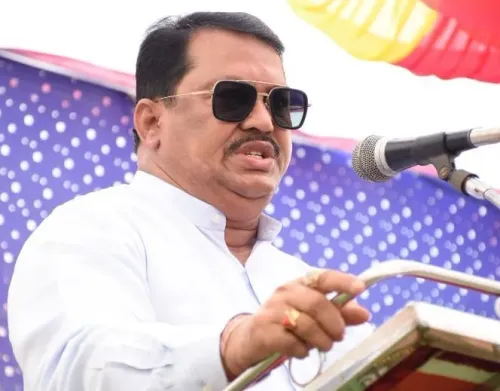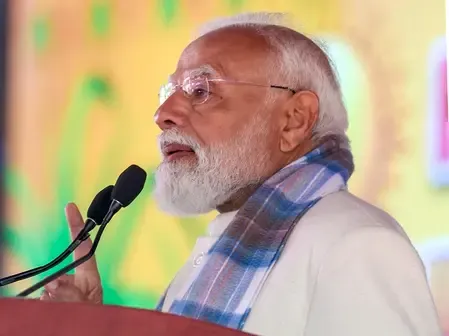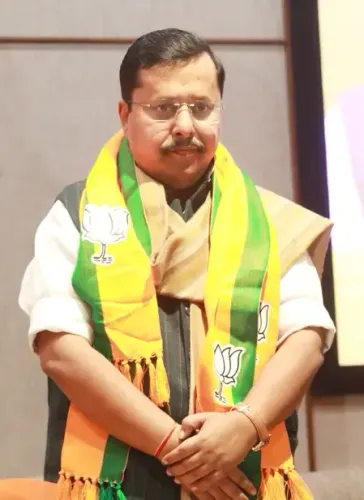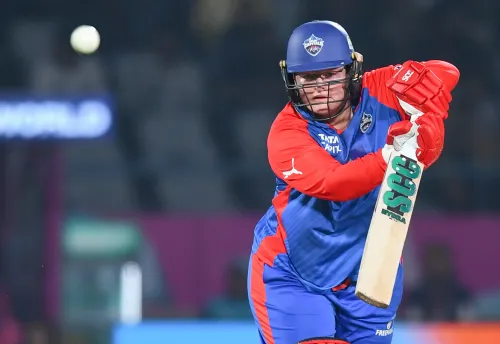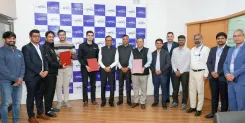Should Marathwada Marathas Be Recognized as Kunbis?
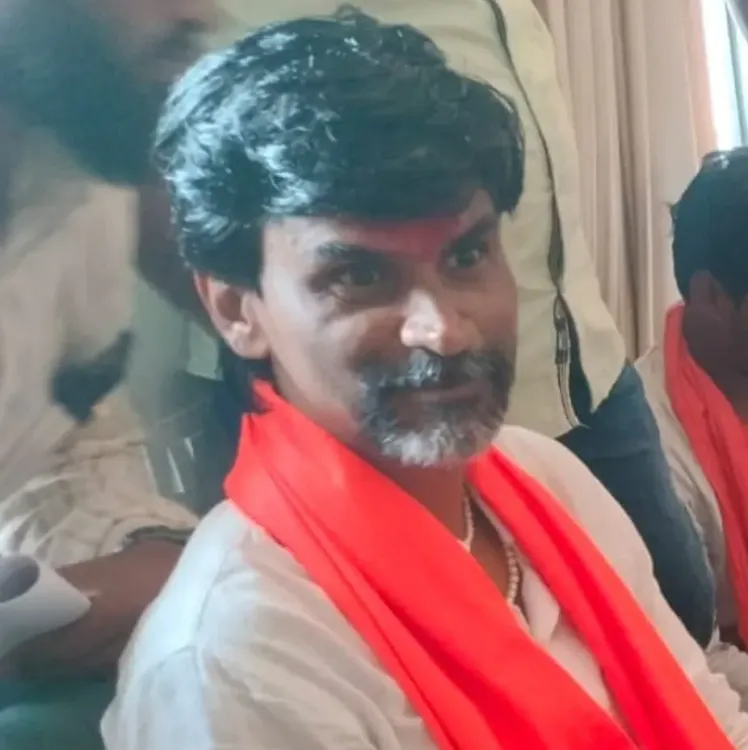
Synopsis
Key Takeaways
- Stalemate continues over Maratha reservation discussions.
- Jarange Patil demands recognition of Marathas as Kunbis.
- The Hyderabad Gazette plays a crucial role in this context.
- Indefinite hunger strike highlights the urgency of the situation.
- Government response remains uncertain.
Mumbai, Aug 30 (NationPress) The ongoing deadlock regarding the execution of Maratha reservation between activist Manoj Jarange Patil and the Maharashtra government persisted on Saturday.
The discussions between Jarange Patil and the government representatives, including Justice Sandeep Shinde, did not reach a resolution.
Justice Shinde informed Jarange Patil that the state government has provided an in-principle agreement to implement the Hyderabad Gazette, and the committee will convene with the Cabinet subcommittee to further this dialogue.
Nonetheless, Jarange Patil maintained that the government must officially designate all Marathas from Marathwada as Kunbis to receive reservations.
The Hyderabad Gazette, issued by the former Hyderabad Nizamshahi government in 1918, recognized the Maratha community as a minority within the Hyderabad state, highlighting their marginalization in employment and political representation.
Consequently, the Nizam's government enacted an order providing certain reservations in educational and job opportunities for the Maratha community under the label of "Hindu Maratha".
Jarange Patil, who has initiated an indefinite hunger strike advocating for reservations for the Maratha community within the OBC quota, noted that the Justice Shinde committee has been examining related gazettes for the past 13 months, and it is now essential for the panel to deliver its findings to facilitate the Marathas' Kunbi status.
He urged for the Marathas to be recognized as Kunbis—an agrarian caste classified under the OBC category—enabling them to qualify for reservations in government employment and education.
"Marathas in Marathwada need to be acknowledged as Kunbis and granted reservations. The Hyderabad and Satara gazettes should be legislated to support this," Jarange Patil asserted.
Following his meeting with the government-appointed delegation, which included Justice Shinde, the Konkan Divisional Commissioner, and other members of the Shinde Committee, Jarange Patil declined to end his hunger strike.
He criticized the government for its lack of engagement, suggesting they were needlessly complicating the Shinde Committee's efforts.
"We have made it clear that the Marathas and Kunbis in Marathwada are indistinguishable. The documentation from the Satara and Hyderabad States supports this. We have asked for the withdrawal of charges against protestors arrested during the Maratha reservation demonstrations," he stated.
He also requested that families of those who lost their lives during the protests be provided with government jobs and financial aid.
"We have communicated to the government that it has been established that Marathas and Kunbis in Marathwada and western Maharashtra are one. Implement this. They have indicated that they will convene a state cabinet meeting. We have allowed 13 months for this," he expressed.
The pro-Maratha activist argued that the government should issue a directive affirming that Marathas and Kunbis are the same, promising to immediately cease the protest.
"We demand the swift enforcement of the gazetteers of Satara and Hyderabad; we will not grant a moment's delay. However, we will allow two months for the Aundh and Bombay Government gazetteers," he insisted.
In response to Jarange Patil’s requests, Justice Shinde indicated that he lacked the authority to provide such a report, emphasizing that it was the responsibility of the backward class commission.
"Caste certificates are assigned to individuals, not entire communities," he clarified.
Jarange Patil also criticized Chief Minister Devendra Fadnavis for appointing retired Judge Sandeep Shinde to engage in discussions with him.
"It is not Justice Shinde’s responsibility to issue government resolutions declaring Marathas and Kunbis as the same. His presence here is disrespectful to the government, Raj Bhavan, and the state," he remarked.
The Justice Shinde committee has been tasked with reviewing records from the previous Hyderabad and Bombay states, where Marathas have occasionally been identified as Kunbis.
Originally designated for the Marathwada region, the committee's mandate has since expanded to encompass the entire state.


